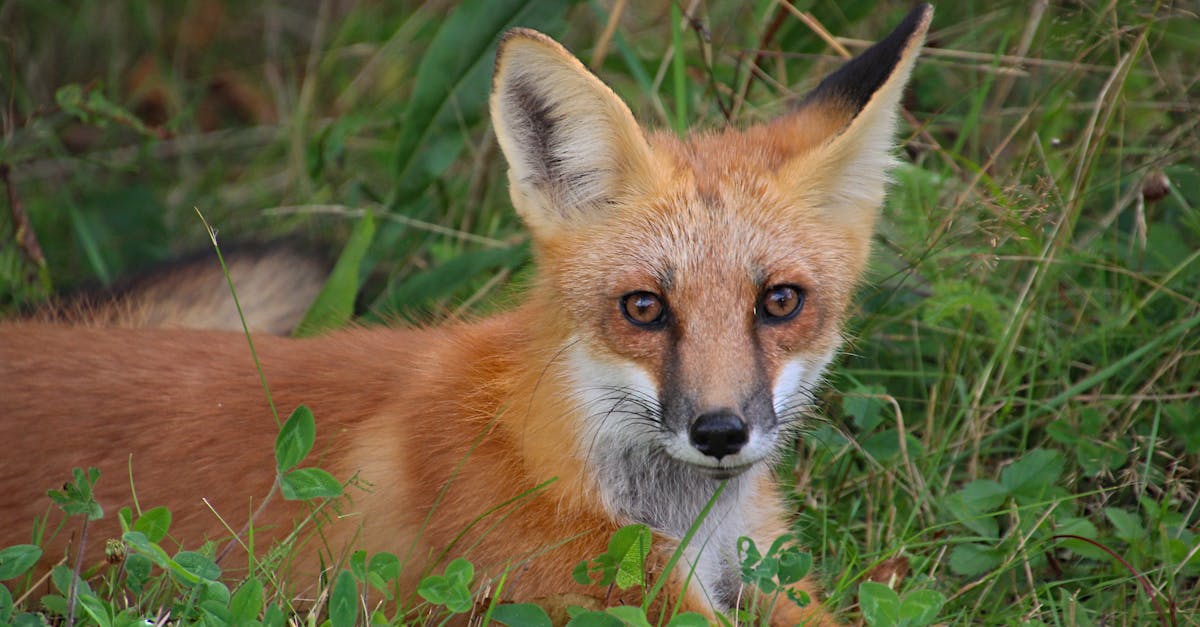Have you ever wondered what it would be like to have a fox as a pet? It’s interesting how these wild animals have captured the imaginations of many, leading to the rise of domesticated foxes. This blog post delves into the intriguing journey of foxes from the wild to our homes, exploring their unique characteristics, the process of domestication, and what it means to live with one of these fascinating creatures.
The Allure of the Fox
Foxes have always held a special place in human culture, often depicted in folklore and media as cunning and mysterious creatures. If you’ve ever watched a fox dart through the woods, you know how captivating they can be. Their sleek bodies, bushy tails, and sharp eyes make them one of nature’s most striking animals. But what happens when this wild beauty is brought into the domestic sphere?
A Brief History of Domesticated Foxes
The domestication of foxes is a relatively recent phenomenon, primarily driven by the Russian Farm-Fox Experiment. Begun in the 1950s by Soviet scientist Dmitry Belyaev, this experiment aimed to understand the process of domestication by selecting foxes for tameness. Over generations, the foxes began to exhibit dog-like behaviors and physical changes, such as floppy ears and curly tails.
-
Key Milestones:
- 1950s: Start of the Russian Farm-Fox Experiment.
- 1980s: Emergence of dog-like traits in foxes.
- 2000s: Increased interest in domesticated foxes as pets.
Personally, I’ve found the results of this experiment both fascinating and enlightening. It’s funny how selective breeding can so dramatically alter an animal’s behavior and appearance.
The Challenges of Fox Ownership
Owning a fox is not for the faint of heart. It’s common knowledge that foxes are not like dogs or cats. They have unique needs and behaviors that can pose challenges for the average pet owner.
Behavioral Traits
Domesticated foxes, while tamer than their wild counterparts, still retain many fox-like behaviors. They are incredibly curious and can be quite mischievous. If you’ve ever had a pet that loves to explore, multiply that curiosity by ten, and you might get an idea of what living with a fox is like.
-
Common Behaviors:
- Digging: Foxes love to dig, and they will do so both indoors and outdoors.
- Chewing: They have a penchant for chewing on anything they can get their teeth on.
- Marking: Unlike dogs, foxes have a strong instinct to mark their territory with scent.
I’ve often thought about the dedication required to manage these behaviors. In my opinion, potential fox owners need to be prepared for a significant commitment.
Legal and Ethical Considerations
It’s worth mentioning that owning a fox is not legal in all areas. Regulations vary widely, and it’s essential to check local laws before considering a fox as a pet. Additionally, the ethical implications of keeping a wild animal in a domestic setting should be carefully considered.
-
Legal Aspects:
- Permits: Some areas require special permits to own a fox.
- Restrictions: Certain states or countries may have outright bans on fox ownership.
- Ethical Concerns: Consider the welfare of the animal and whether you can provide an environment that meets its needs.
You’d be surprised how often people overlook these crucial factors. As I see it, responsible ownership begins with thorough research and a deep understanding of the animal’s needs.
The Benefits of Owning a Domesticated Fox
Despite the challenges, there are undeniable benefits to owning a domesticated fox. These animals can form strong bonds with their owners and provide a unique companionship that is unlike any other pet.
Unique Companionship
Foxes are highly intelligent and can be incredibly affectionate with the right socialization. They have a playful nature that can bring a lot of joy and entertainment to a household. If I had to guess, many fox owners would say that the bond they share with their pet is deeply rewarding.
- Bonding: Foxes can form strong attachments to their owners.
- Playfulness: Their playful antics can be a source of endless amusement.
- Intelligence: Foxes are quick learners and can be trained to perform various tricks.
On that note, I couldn’t help but notice how fox owners often speak about their pets with a sense of pride and affection. It’s clear that the relationship between a fox and its owner can be incredibly fulfilling.
Educational Value
Owning a fox can also be an educational experience. It provides a unique opportunity to observe and learn about animal behavior and the domestication process firsthand. Ever wonder why certain traits emerge in domesticated animals? Living with a fox can offer insights that you won’t find in textbooks.
- Learning Opportunity: Gain a deeper understanding of animal behavior.
- Observation: Witness the domestication process in action.
- Education: Share knowledge and experiences with others.
From what I’ve seen, many fox owners become passionate advocates for animal education and conservation, using their experiences to raise awareness about these remarkable creatures.
Preparing for a Fox in Your Home
If you’ve decided that you’re up for the challenge and rewards of owning a domesticated fox, there are several steps you need to take to prepare your home and life for this unique pet.
Creating a Fox-Friendly Environment
Foxes require a secure and stimulating environment to thrive. This means fox-proofing your home and providing plenty of enrichment activities to keep them occupied.
- Secure Enclosure: Ensure that your yard or outdoor space is secure to prevent escapes.
- Enrichment: Provide toys, digging areas, and other forms of stimulation.
- Safety: Remove any hazardous items that a curious fox might get into.
I’ve been meaning to emphasize the importance of creating a safe and engaging environment for your fox. It hit me that many potential owners might underestimate the level of preparation required.
Diet and Healthcare
Foxes have specific dietary needs that differ from typical pets. They require a balanced diet that includes a mix of proteins, fruits, and vegetables. Regular veterinary care is also crucial to ensure their health and well-being.
- Diet: Provide a balanced diet with a variety of foods.
- Veterinary Care: Regular check-ups and vaccinations are essential.
- Health Monitoring: Keep an eye on your fox’s health and behavior for any signs of illness.
In my own life, I’ve seen how proper diet and healthcare can significantly impact an animal’s quality of life. It’s no different for foxes, and responsible ownership means prioritizing their health and well-being.
The Future of Domesticated Foxes
The domestication of foxes is still a relatively new field, and ongoing research continues to uncover new insights into their behavior and genetics. As interest in these unique pets grows, it’s essential to balance curiosity with responsibility.
Research and Conservation
Continued research into fox domestication can provide valuable information about the process of domestication and its effects on animal behavior. This knowledge can also contribute to conservation efforts for wild fox populations.
- Research: Ongoing studies on fox genetics and behavior.
- Conservation: Using knowledge gained from domestication to aid in conservation efforts.
- Education: Raising awareness about the importance of preserving wild fox habitats.
I’ve come to realize that the future of domesticated foxes is closely tied to our understanding and respect for their wild counterparts. It’s interesting that the more we learn about domesticated foxes, the more we can do to protect their wild relatives.
Responsible Ownership
As the popularity of domesticated foxes grows, it’s crucial to promote responsible ownership. This means educating potential owners about the challenges and responsibilities involved and advocating for the well-being of these animals.
- Education: Inform potential owners about the realities of fox ownership.
- Advocacy: Promote ethical and responsible treatment of foxes.
- Community: Build a community of informed and responsible fox owners.
I couldn’t help but notice how passionate and dedicated the fox ownership community is. They play a vital role in ensuring that these animals are treated with the care and respect they deserve.
Conclusion: The Unique Joy of Fox Companionship
In the end, owning a domesticated fox is a unique and rewarding experience that comes with its own set of challenges and responsibilities. It’s clear that these animals can bring immense joy and companionship to those who are prepared to meet their needs. If you ask me, the key to a successful relationship with a fox lies in understanding and respecting their wild nature while providing a loving and stimulating environment.
If you’ve ever considered welcoming a fox into your home, take the time to educate yourself and prepare thoroughly. The journey from the wild to your home is a remarkable one, and with the right approach, it can be a deeply fulfilling experience for both you and your fox.
Note: Always check local regulations and consult with experts before considering a fox as a pet. Responsible ownership is crucial for the well-being of these unique animals.

For more information on fox domestication and ownership, visit Fox Research Center.

















